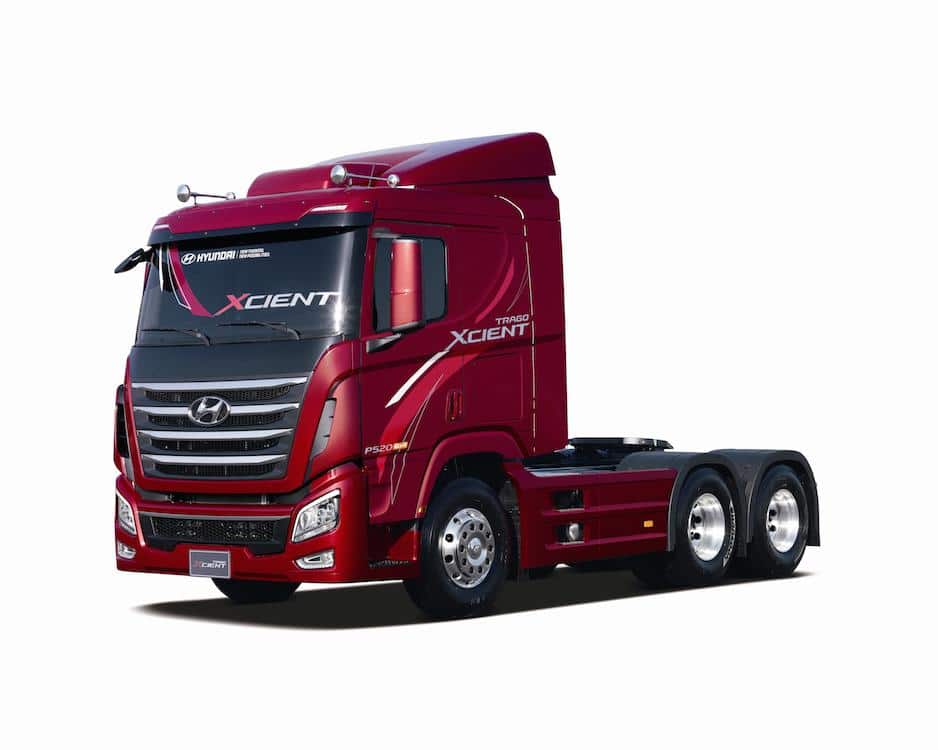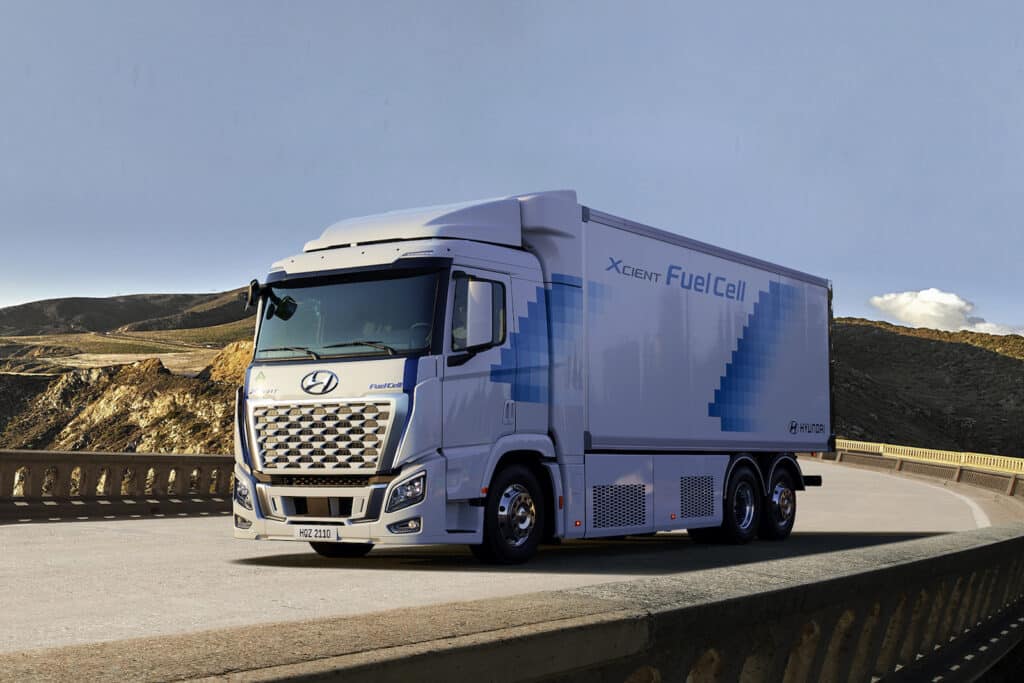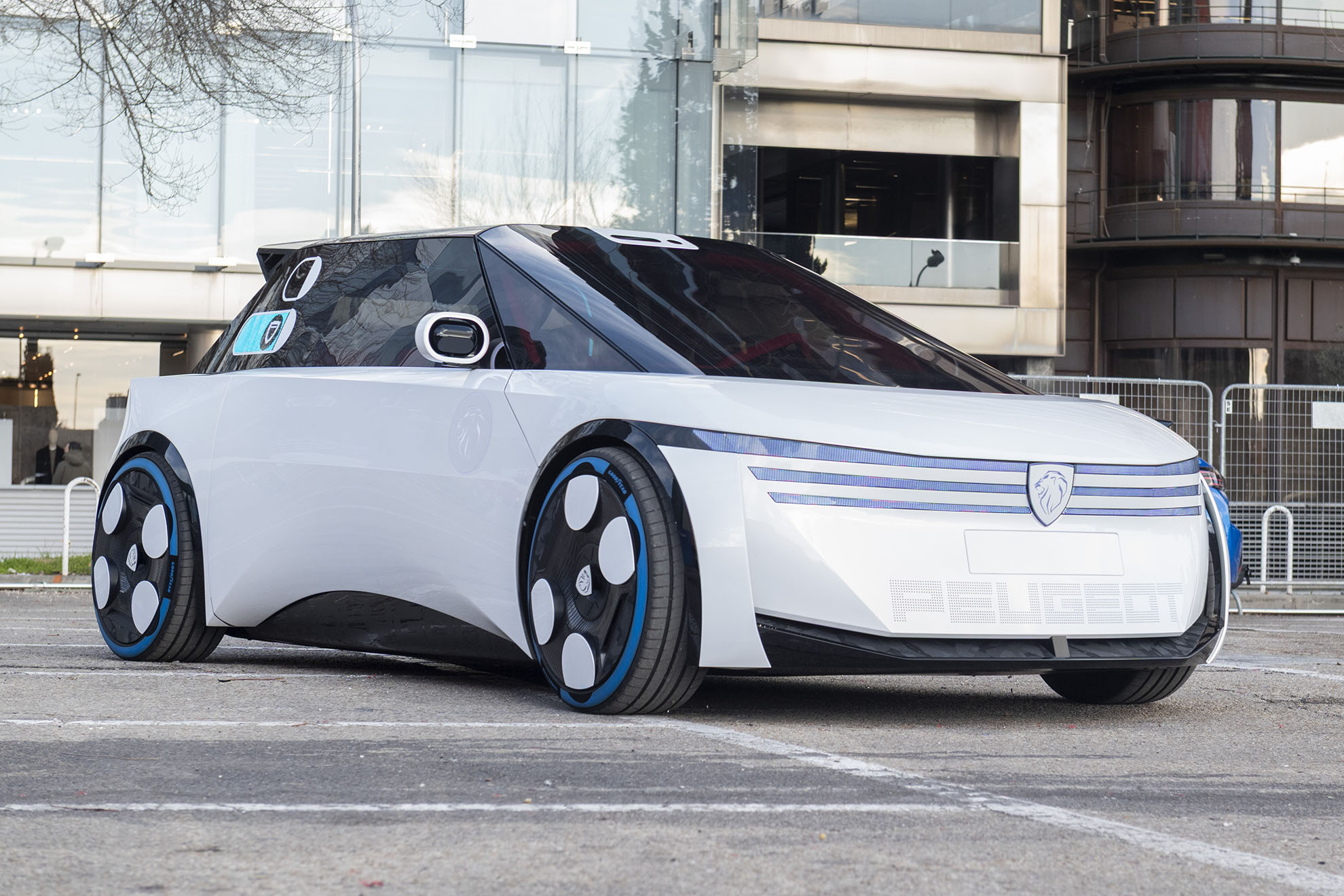HYUNDAI

Company expands fuel cell truck testing
Promising technology can sometime prove frustrating for carmakers.
Just last week, Ford Motor Co. announced it was shutting down Argo AI, its autonomous vehicle unit since the technology simply has not developed fast enough to justify further investment. It’s a controversial call one that could come back to haunt Ford.
Fuel cells, which can deliver the power needed to run electric vehicles, are another technology that have fascinated automakers years without reaching commercial maturity.
But automakers keep investing and tinkering with the technology.
Hyundai pushes fuel cells...Only last week, Hyundai Motor Co. announced its fleet of Xcient Fuel Cell heavy-duty trucks in Switzerland has accumulated more than 5 million km in two years.
Starting in 2020, the company exported 47 units of the hydrogen-powered, zero-emission commercial trucks to 23 Swiss companies, which are using them for logistics, distribution and supermarket deliveries.
“Xcient Fuel Cell is the world’s first heavy-duty fuel cell truck to achieve 5 million kilometers of cumulative driving in real-life customer operation,” said Mark Freymueller, senior vice president and head of Commercial Vehicle Business Innovation at Hyundai Motor Co.
“The experience we’ve gained and the milestone we’ve achieved in Switzerland will provide good insights to many countries that are preparing to transition to a sustainable hydrogen society. Based on this proven track record of successful operation in Switzerland, we will expand this business throughout Europe.”

In 2019 Hyundai Motor established Hyundai Hydrogen Mobility (HHM) in partnership with Swiss company H2 Energy which partnered with H2 Mobility Switzerland Association, a hydrogen fueling network builder and XCIENT customer, and green hydrogen production company Hydrospider.
Hyundai Motor is playing a crucial role in creating an emission-free, green hydrogen fuel cell heavy-duty truck ecosystem where vehicle supply, hydrogen fueling, and green hydrogen production are organically connected.
Toyota, Bosch moving forward on fuel cells...Other automakers, notably Toyota, also have invested heavily in fuel cell technology, and plans to begin manufacturing fuel cell stacks at its manufacturing complex in Georgetown, Kentucky by 2024. Bosch also has announced plans to invest $200 million at a plant in Anderson, South Carolina starting to build fuel cell stacks for the heavy-duty trucks, which the German automotive supplier sees becoming a regular feature on American road over the several years.
The move is significant since Bosch has always been a key supplier for Germany’s diesel engine builders.
Cummins, the big maker of diesel engines based in Columbus, Indiana, also has been moving into the fuel-cell space.
Meanwhile, Hyundai’s Xcient fuel cell truck underscores the future of the technology.
The Xcient fuel cell is equipped with a 180-kW hydrogen fuel cell system with two 90-kW fuel cell stacks. The system’s durability and the vehicle’s overall fuel efficiency are tailored to the demands of commercial fleet customers, according to Hyundai.
The 350-kW e-motor with maximum torque of 2,237 Nm enables dynamic driving performance. Its seven large hydrogen tanks offer a combined storage capacity of around 31 kg of fuel, while a 72-kWh-powered set of three batteries supports the performance. The driving range is more than 400 km per charge in real world conditions. Refueling a full tank of hydrogen takes about eight to 20 minutes, depending on the ambient temperature.
Xcient fuel cells trucks are operated in various fields, including logistics, manufacturing and retail fulfillment, in various key markets.
Hyundai Motor is now preparing to deliver its fuel cell truck to customers in Germany with seven local companies, and secured the U.S. Environmental Protection Agency 2021 Targeted Airshed Grants (TAG) funding to deploy further fuel cell trucks in California in addition to 30 trucks which will be rolled out in the NorCal Zero project starting their operation in the Port of Oakland mid next year.
by Joseph Szczesny, Detroit-USA

Nenhum comentário:
Postar um comentário